Playing It As It Comes
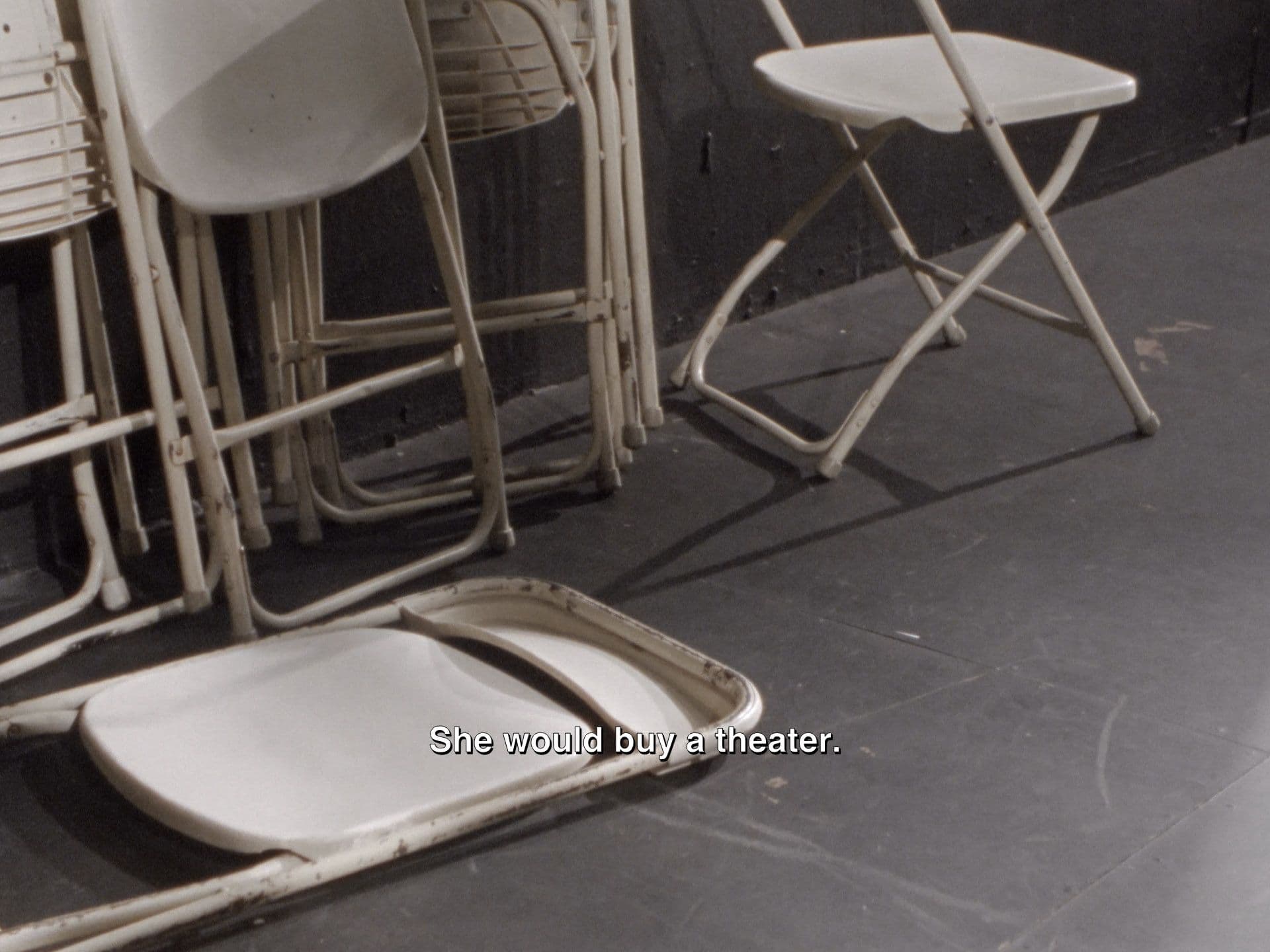
During our video call, I can see behind Calla Henkel and Max Pitegoff the very same theater that stars in THEATER: a fifty-seat venue in Los Angeles they discovered almost by chance. Their 16mm film, which premiered at Fluentum in Berlin, follows Kennedy (played by Leilah Weinraub), who buys the theater with an insurance settlement and attempts to build a company, navigating strikes, ghosts, and the quiet pressure to make something—anything—work. THEATER naturally evolves from their previous work Paradise (2020–2022), shot in their Berlin TV Bar, where bartender-friends recited texts from a teleprompter, transforming the venue into a curious live newscast. After years in the German capital, the duo brought this formula to Los Angeles, founding New Theater Hollywood. Here, theater becomes both a stage and a tool to explore social relationships in contemporary cultural production—in a city that, as in the title of Thom Andersen's 2003 film, “plays itself”.
When I watched the three episodes of THEATER (2024-), I immediately thought of Paul Schrader’s film The Canyons (2013), where images of once-glamorous movie theaters—now abandoned or changing—open and close the narrative sections like curtains. Could you tell me how you discovered your theater, and how the idea for this project came about?
We knew we wanted to make a film about someone running a theater, although we weren’t ready to run one ourselves. We had just closed TV Bar (2019–2022) and were profoundly burnt out by the realities of having a physical space. So making a film about it felt like an easier entry point. We stumbled upon the theater while shooting photographs for our 2023 show at Reena Spaulings. We saw a sign on this windowless corner building that just said “Available.” Calla decided to call, and the landlord invited us to see it the next day. So we brought our 16mm camera, and Calla distracted him with conversation while Max recorded as much as possible of this black-box theater. After the landlord ushered us out, we were spat back into the sun on Santa Monica Boulevard and it crept up on us—we had no choice but to make the film THEATER, we’d found the perfect theater. It felt haunted in a good way. So the space itself dictated the format of New Theater Hollywood, the venue we eventually opened there. Because it had been a theater since the 1990s, it carried a seriousness, almost an absurd self-seriousness, about keeping something alive, which definitely ties into your reference to The Canyons. We feel like our film THEATER is really about this character trying to keep a flame glowing in a storm, and the difficulty of that. In the end, the brick-and-mortar space and our film are intimately connected. One could not exist without the other.
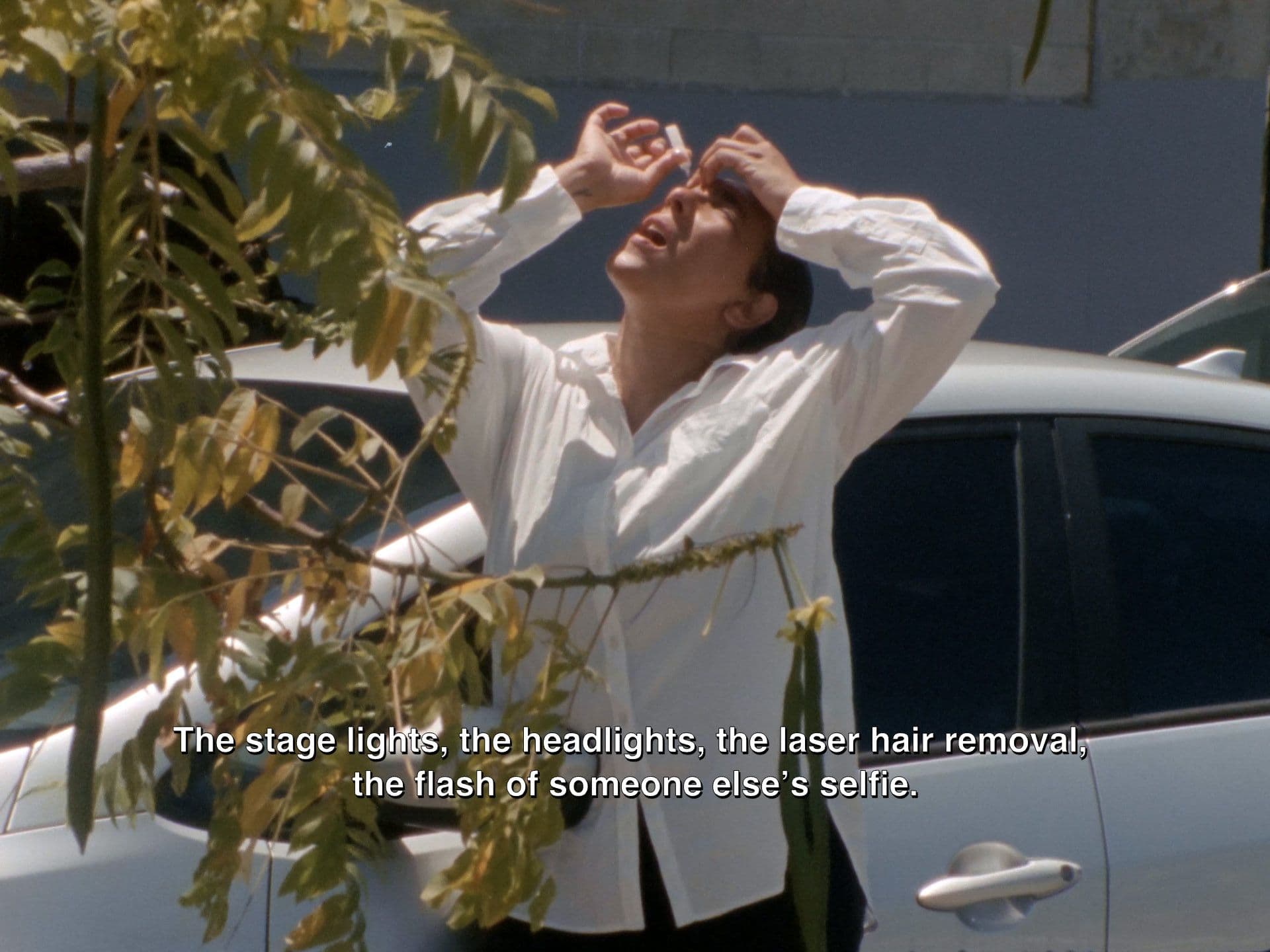
You’ve recently arrived in Los Angeles after spending a significant time living elsewhere. How does LA feel to you at this moment?
We’re originally from different parts of the States, and spent many years in Berlin. There’s always been this American fantasy about the West, which resonates in Germany as well—the idea of the West as some burgeoning, endless frontier. But being here now, it feels like LA has collapsed in some ways. It’s very much post-fire, post-strike. Hollywood is holding on by a thread. It’s a good moment to unpack that old desire of heading west. There’s a certain shamelessness in us being here. In Berlin, our practice often reflected on the city’s image. Here in LA, that self-performance is built into how cultural production works. Everyone is performing. Running a theater here fits perfectly with the city’s DNA. The humor of it in a town where everyone is an actor is not lost on us—it’s the perfect form for this place, and our work. The city feels like an endless film set, but little production actually even happens in LA anymore; there’s all this stagnancy. We’re currently working with the artist Oliver Misraje-Bentley on a piece involving a TMZ celebrity tour bus, exploring this literary idea of the California Gothic, post-glory and post-empire. There is a lot that needs to be redefined here. Desire feels liquid. The classic Hollywood dream of owning a house in the hills has lost its meaning, since now those hills can burn. The dream is not safe.


In a previous conversation, Calla mentioned you were drawing from the German theater tradition, where artistic directors also shape the institution’s identity, for your current project. Could you elaborate on this approach?
We always admired the German theater system, where a director like Frank Castorf could simultaneously run the theater and make his own plays. Theater in Los Angeles operates completely differently—most theaters here use a rental model, so there’s no continuity. We wanted to introduce a form of artistic producing, where the artist is also the producer. This aligns naturally with how LA understands the term “producer,” so it’s easily graspable here. We’d eventually love to build an ensemble, as theaters in Germany do, employing actors and directors regularly. We’re not quite there yet with New Theater Hollywood, but that’s our liquid dream.

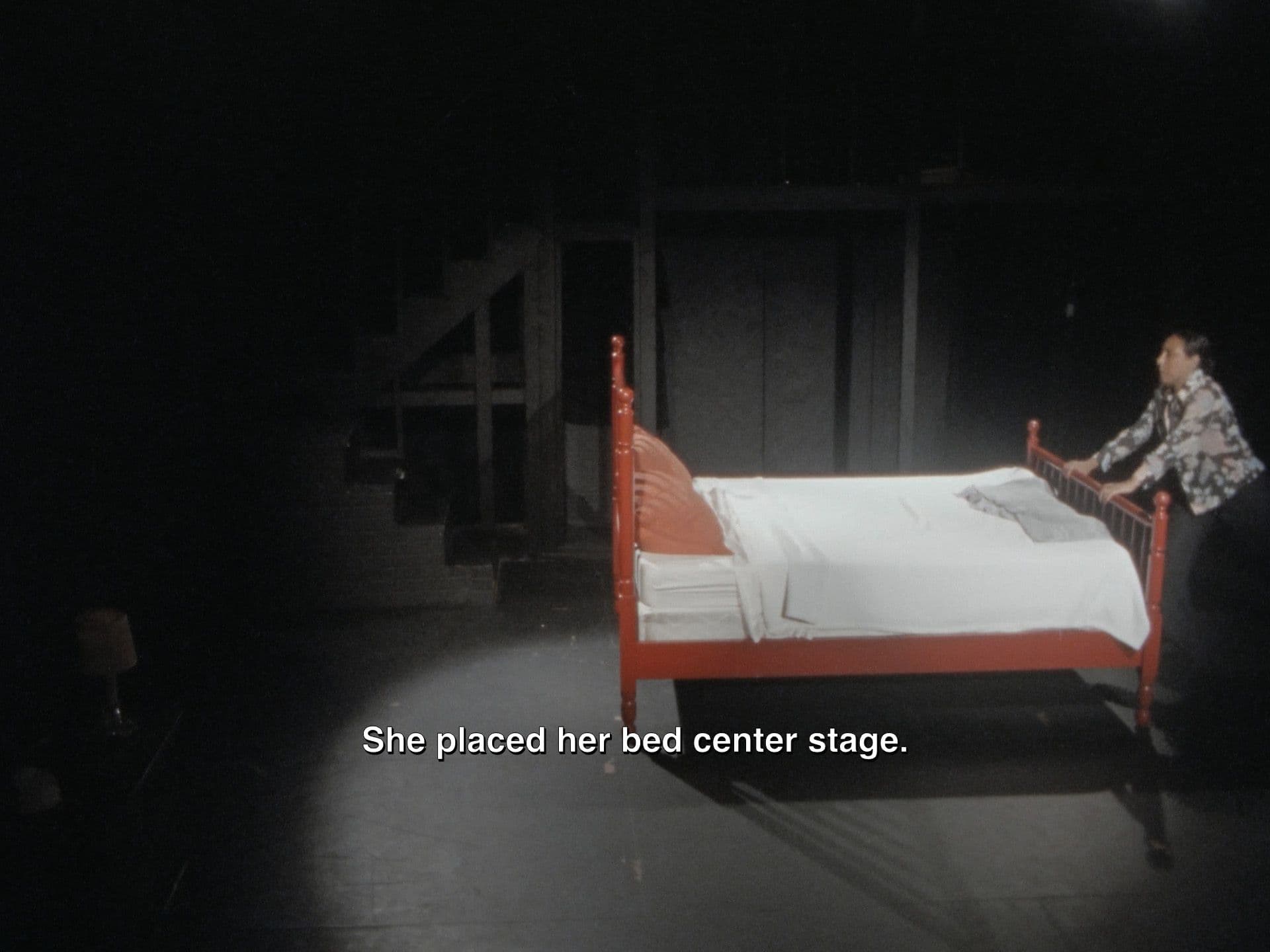
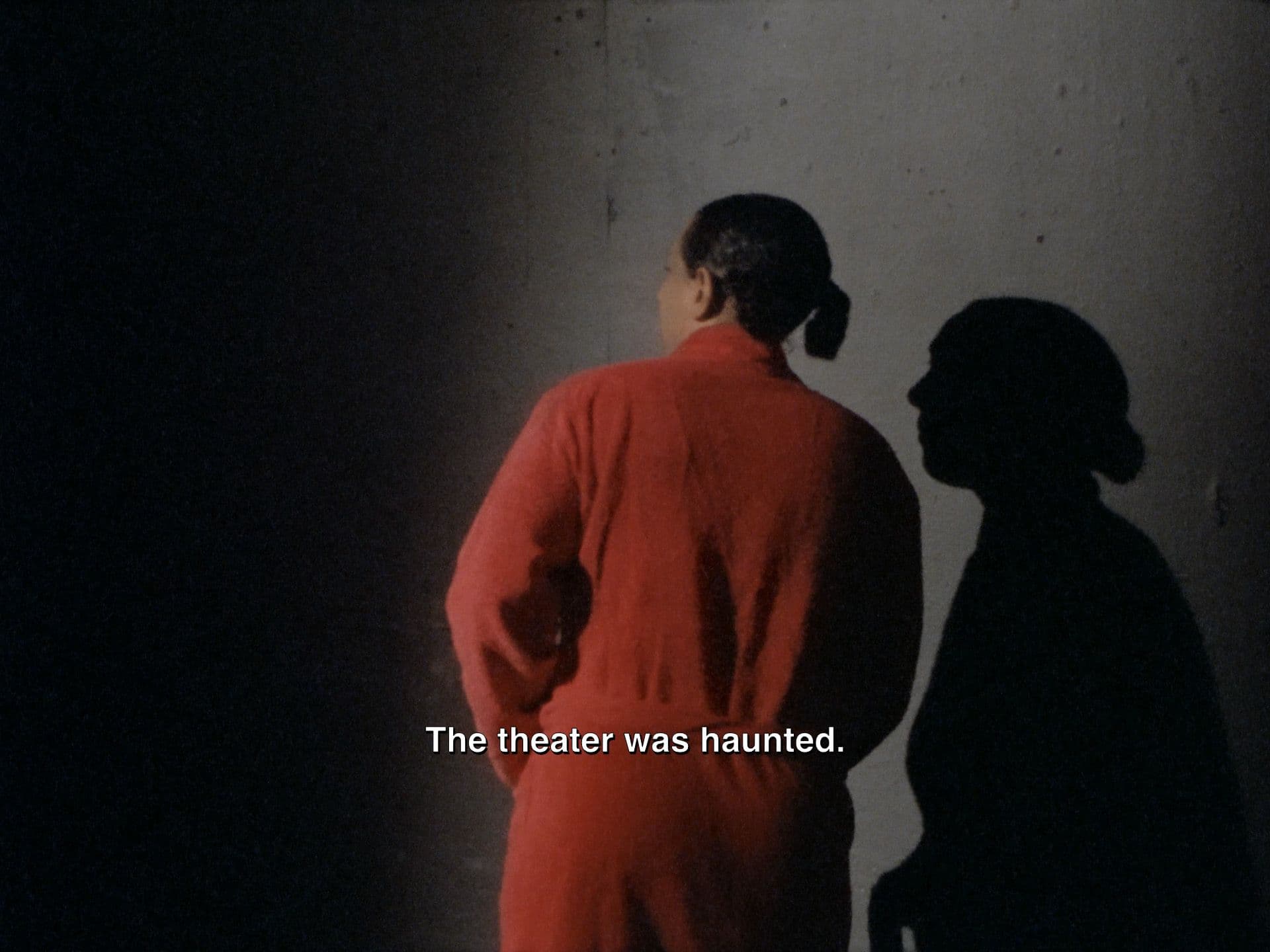
I was watching the film with a friend, and I thought I recognized Arto Lindsay in it. I’m not sure if his face is ever shown, but those hand movements on the guitar seemed unmistakable. Was that him?
Yes! Arto performed in The Rant (2015), a show we did here with Karl Holmqvist and Klara Liden. He came from Brazil to do it. We’ve become close with him over the years. The Rant was first developed ten years ago at the original New Theater in Berlin with Karl, Arto, and Klara making the set. It was resurrected last year in LA in a very different context, with new things to rant about. There is a lot to rant about right now.
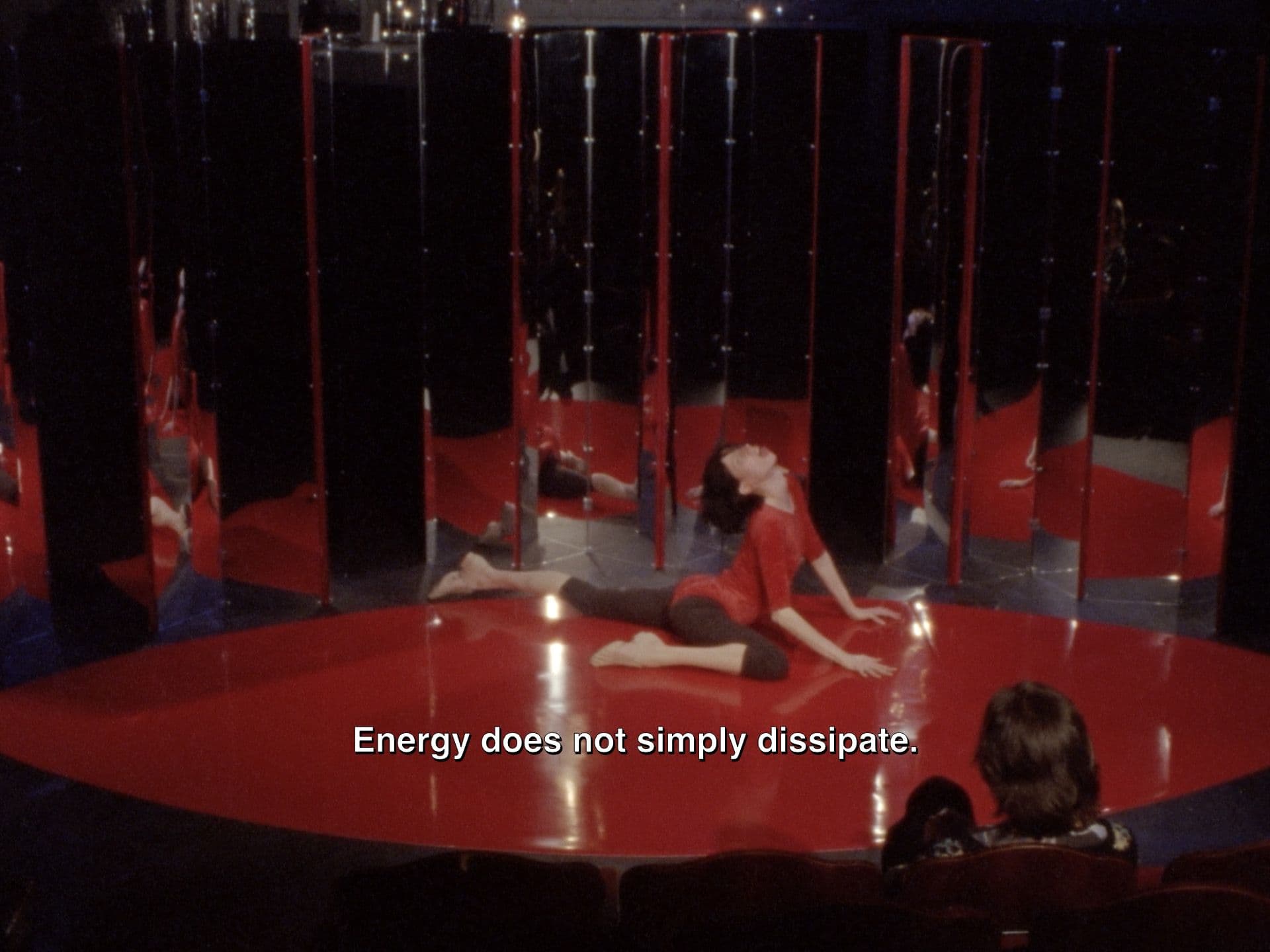
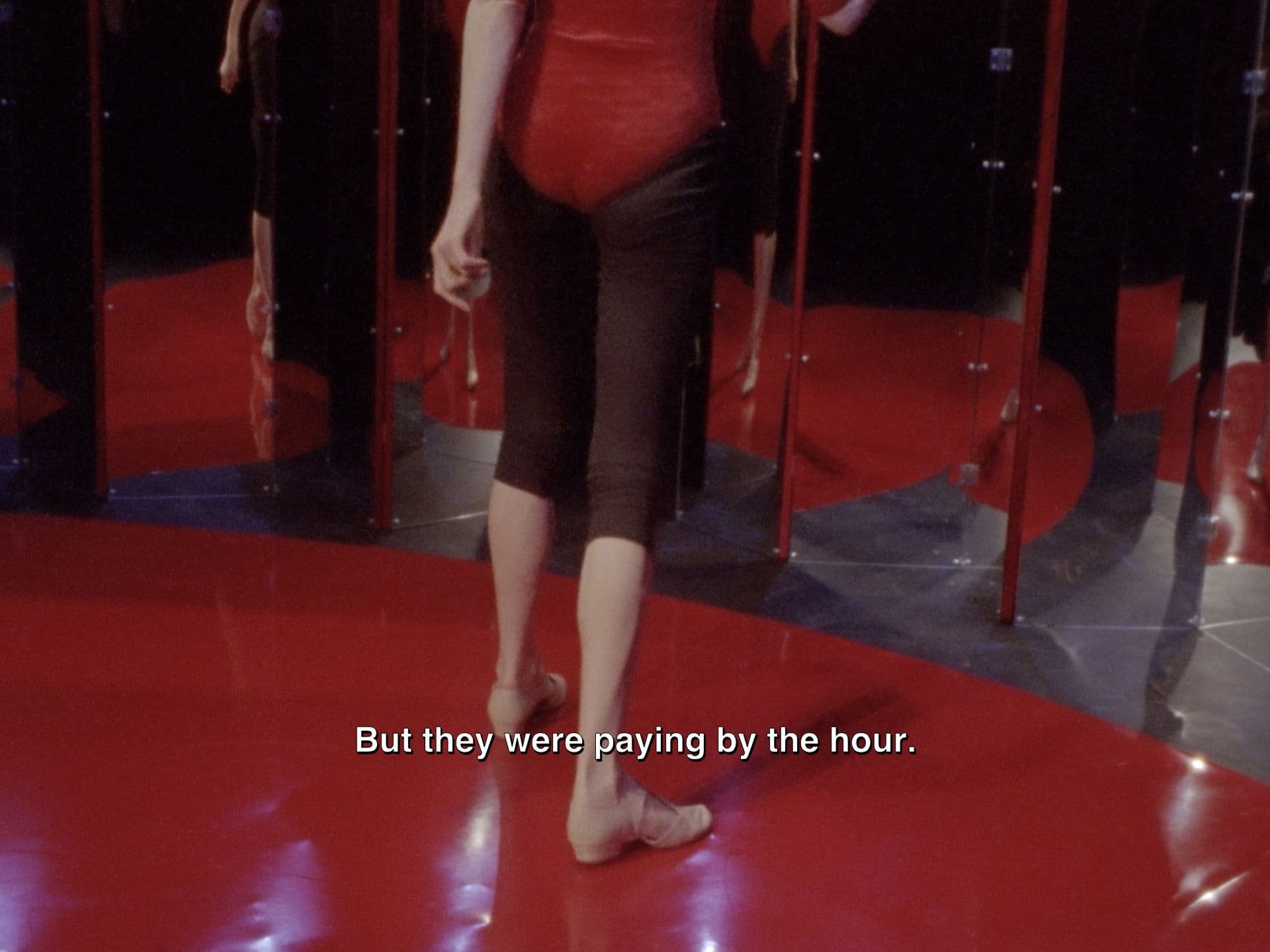
Both Paradise (2020–22) and THEATER reference Tennessee Williams. What draws you specifically to him?
There’s a peculiar obsession with Tennessee Williams among young actors in LA. Acting classes here almost feel cultish, endlessly repeating the same texts, with Williams serving as a sort of sacred reference. In Paradise, we initially named a character Tennessee as a loose stand-in for the actor Tenzing Barshee’s actual name. But when we arrived in LA, encountering all these young actors fixated on Williams, we felt we had to engage more consciously with his work. Williams has always embodied this camp quality, built for actors to express extreme emotions—all that “How dare you leave me!” melodrama—which also connects to the city’s obsession with performance. Coming from an art background and living in Berlin for so long, Williams felt like this cotton-candy American text rather than serious canon. These deities of American culture are taken really seriously here, which we’re also processing in the film. Williams’s characters often exist on the edge of emotional collapse, mirroring LA’s own precarious glamour. It seems particularly relevant today, when the city’s traditional myths are losing their allure.
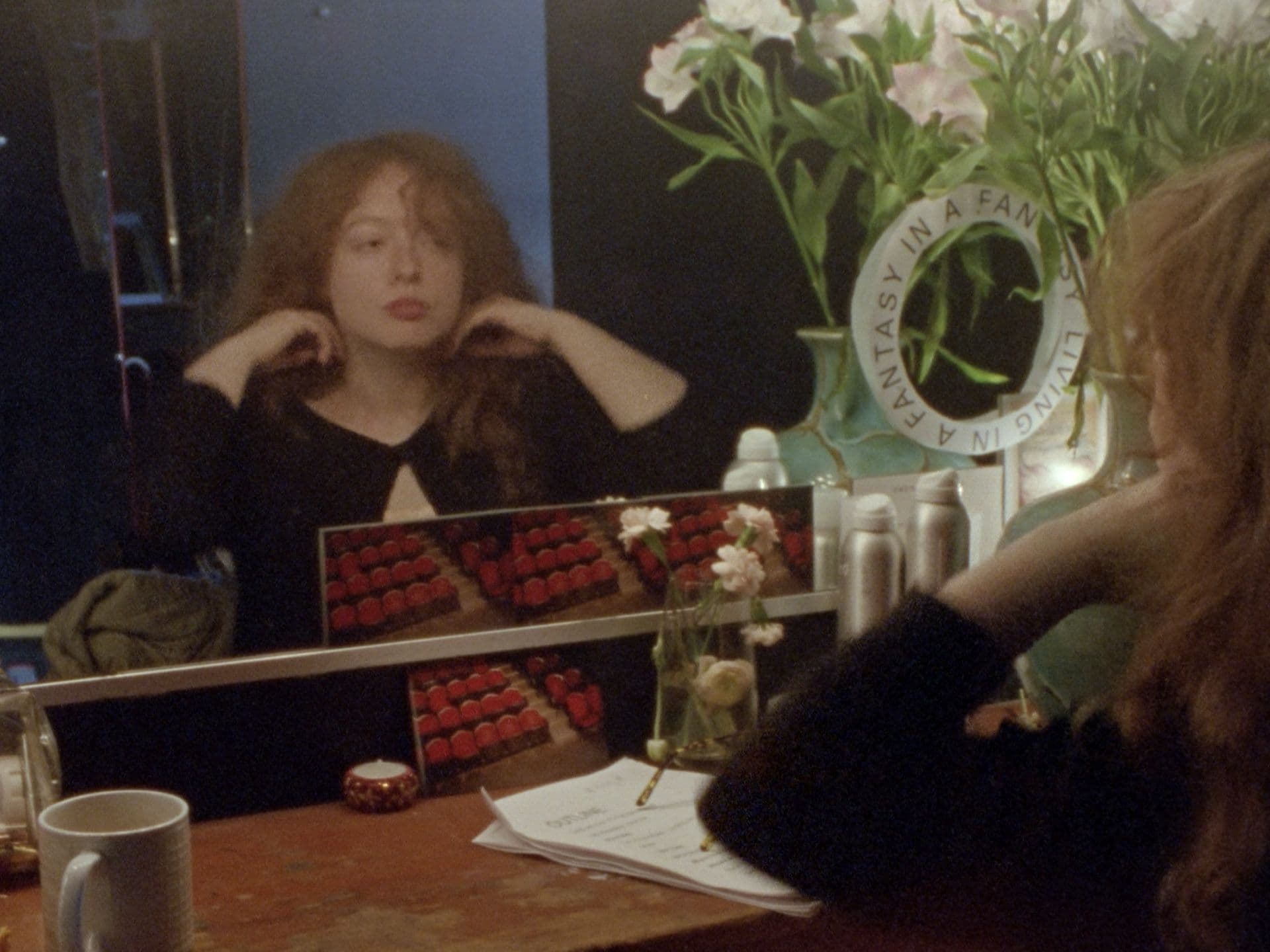
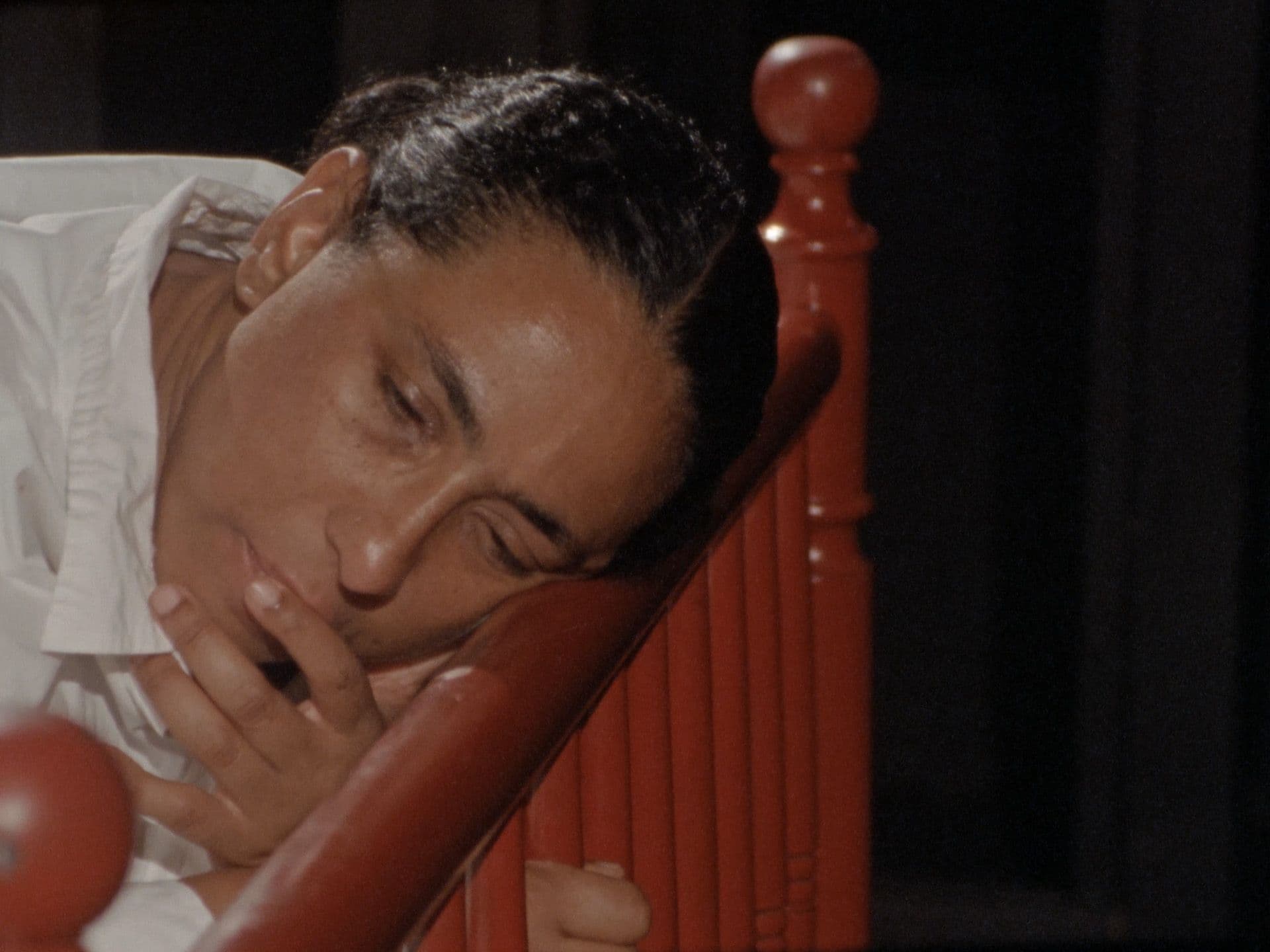
Early on, critics often linked your work to relational aesthetics. But your practice seems very distinct from that. How do you perceive this difference?
Relational aesthetics was frequently mentioned when we first started working together, but it always made us feel uneasy. Where relational aesthetics brought social relations into art institutions, our practice involves creating institutions independently, accessible to anyone without needing museum validation. Put simply, our work needs to be real in a way that anyone can engage with it. TV Bar was open every week and anyone could walk in and get a beer—no one had to know it was part of an art practice. It got to function in the world without art being the gasoline to the project. The real gasoline is the everyday maintenance of a space, which allows things to happen within it. Our projects are typically long-term, running two to five years—a very different type of commitment than a pop-up bar. Because of that timeframe, there is an essential aspect of unpredictability and organic evolution in our work. We respond directly to our surroundings and allow our narratives and concepts to develop fluidly, shaped by real-life events and interactions.
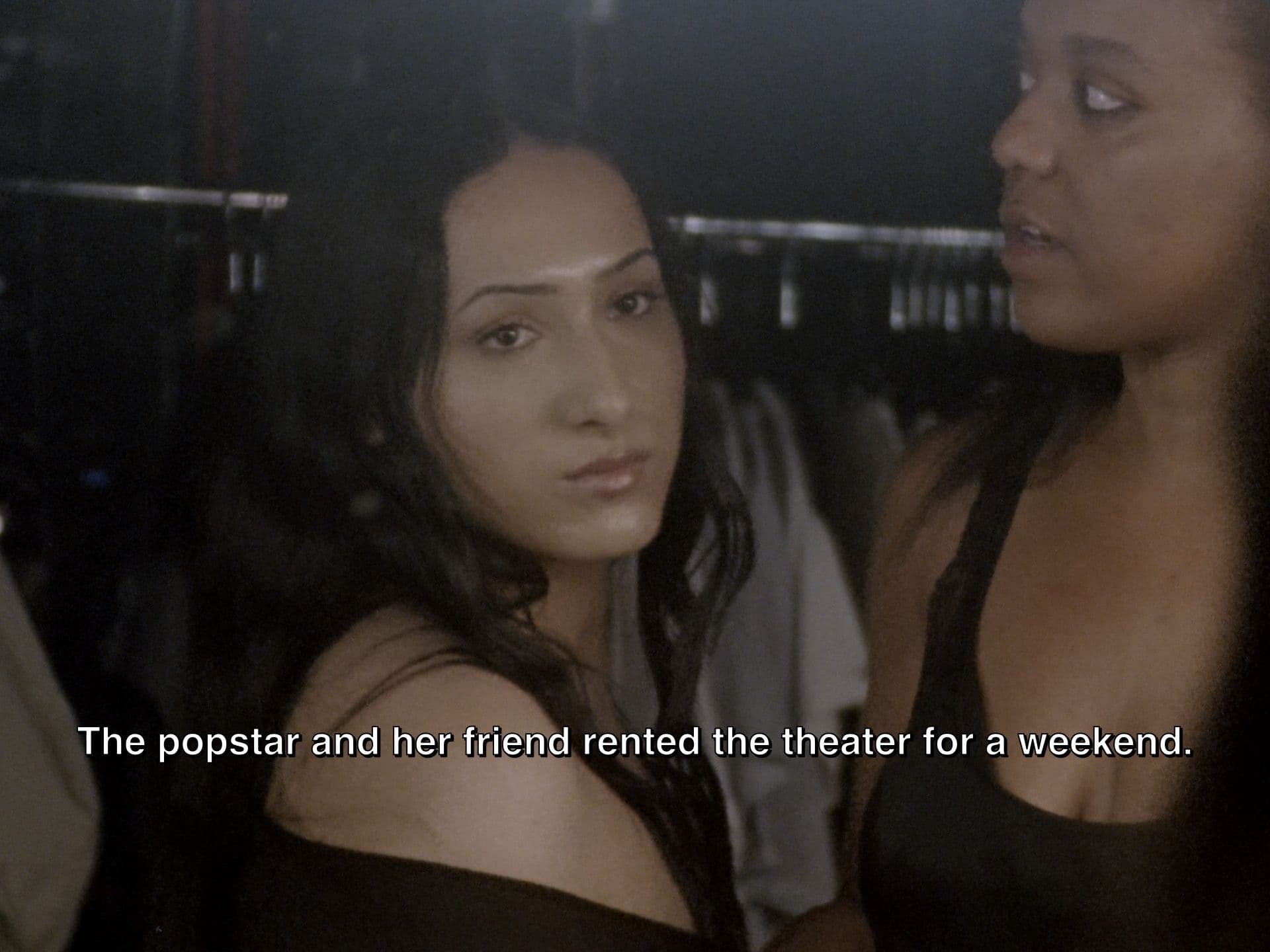
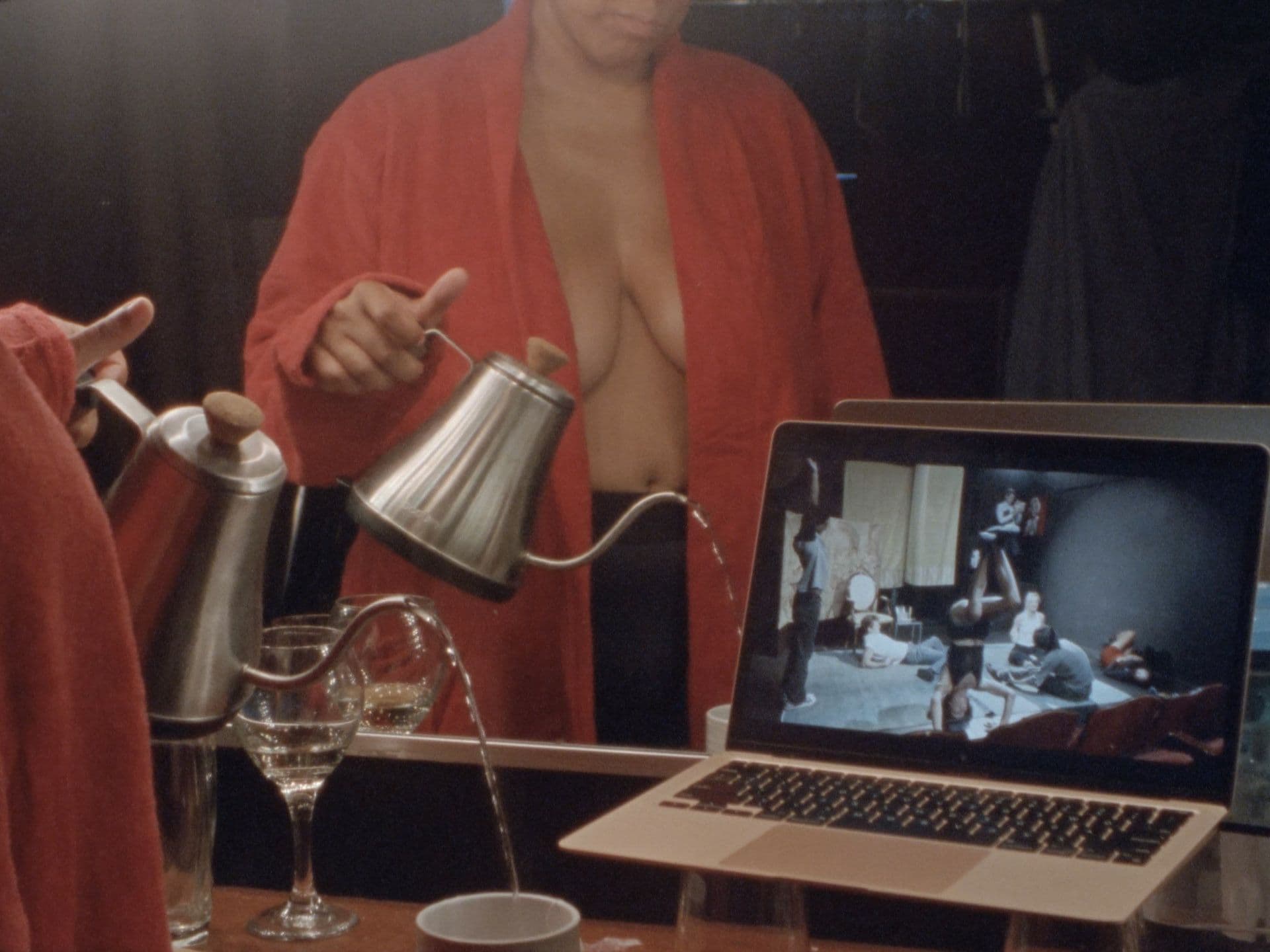
Another important aspect of your projects seems to be labor—who’s working, who’s getting paid. What did you learn from running TV Bar?
TV Bar was intense, especially since we ran it during COVID. Initially, TV Bar was our way to reclaim independence after trying to work within the larger machine of the Volksbühne. Over time we became deeply interested in how to run a bar with fifteen bartenders, and the work and care that it takes to work regularly with people in that way. It felt almost like a workplace dramedy, being deeply intertwined with everyone’s lives, for instance receiving text messages from people about why they couldn’t come in to work. The regularity of it was one of the main takeaways. We had a schedule, and it took a lot for us to break it, even to travel. We knew we should raise the prices, we knew we should charge people—a lot of people would drink for free. It wasn’t completely sustainable forever, but it marked a specific moment in time that I think was the end of our youth. By the end, we wanted to pass the bar on to our employees, but the building was sold, which unexpectedly ended the narrative (and our lease). Running TV Bar was all about commitment, regularity, and the blurred boundaries between performance and labor.


What’s next for THEATER?
We’re producing a new episode this year, which we’ll present at the Hammer Museum for the Made in LA biennial. Having a deadline is helpful. Recently, our theater’s exterior was painted red, and we’re incorporating that visually into the narrative by introducing a character who pretends to be a playwright in an attempt to impress an actress; he rents the theater and paints it red. We continually build the story by responding directly to our surroundings, keeping the narrative flexible and evolving. We’ve been shooting rehearsals and backstage footage from all the plays, building an archive of footage that shapes our evolving narrative organically. Calla’s red bed has to be brought from her house to the theater every time we shoot—our personal lives and work are again always intertwined.
Calla Henkel and Max Pitegoff are an artist duo who have worked together for over a decade, developing a practice that is embedded in the founding and running of venues as sites of social and collaborative artistic work. They currently operate New Theater Hollywood, a black box theatre in Los Angeles. Previously, in Berlin, they ran TV Bar, a bar and performance space, as well as New Theater, a storefront where they wrote and produced plays with artists, writers and musicians. Their expanded documentation of these spaces takes form through filmmaking, photography, sculpture and writing, and traces the economic, political, and personal rules or conditions under which shared space can exist. New Theater Hollywood, founded in 2024 in a black box theatre on Santa Monica Boulevard, produces experimental theatrical productions with artists, musicians, filmmakers, writers and performers. Last year, they produced and hosted shows by PRICE, Stephanie LaCava, Casey Jane Ellison, Klein, Kalena Yiaueki, David Louis Zuckerman, Colin Self & Diamond Stingily, Jasmine Johnson, Karl Holmqvist/Arto Lindsay/Klara Liden, Ruby McCollister, and Lily McMenamy. Henkel and Pitegoff's work has been shown in solo exhibitions at Fluentum, Berlin; Reena Spaulings, New York; O-Town House, Los Angeles; Galerie Isabella Bortolozzi, Berlin; MAMCO, Geneva; Fri Art Kunsthalle, Fribourg; Cabinet, London; Kunstverein Hamburg, Schinkel Pavillon, Berlin; and The Whitney Museum, New York, among others.
Francesco Tenaglia (Chieti) is an educator, curator and a writer.
All images: Calla Henkel and Max Pitegoff THEATER (2024). Courtesy the artists.
finanziato dall'Unione Europea - Next Generation EU